7 Things You Touch at the Grocery Store That Can Transmit Coronavirus
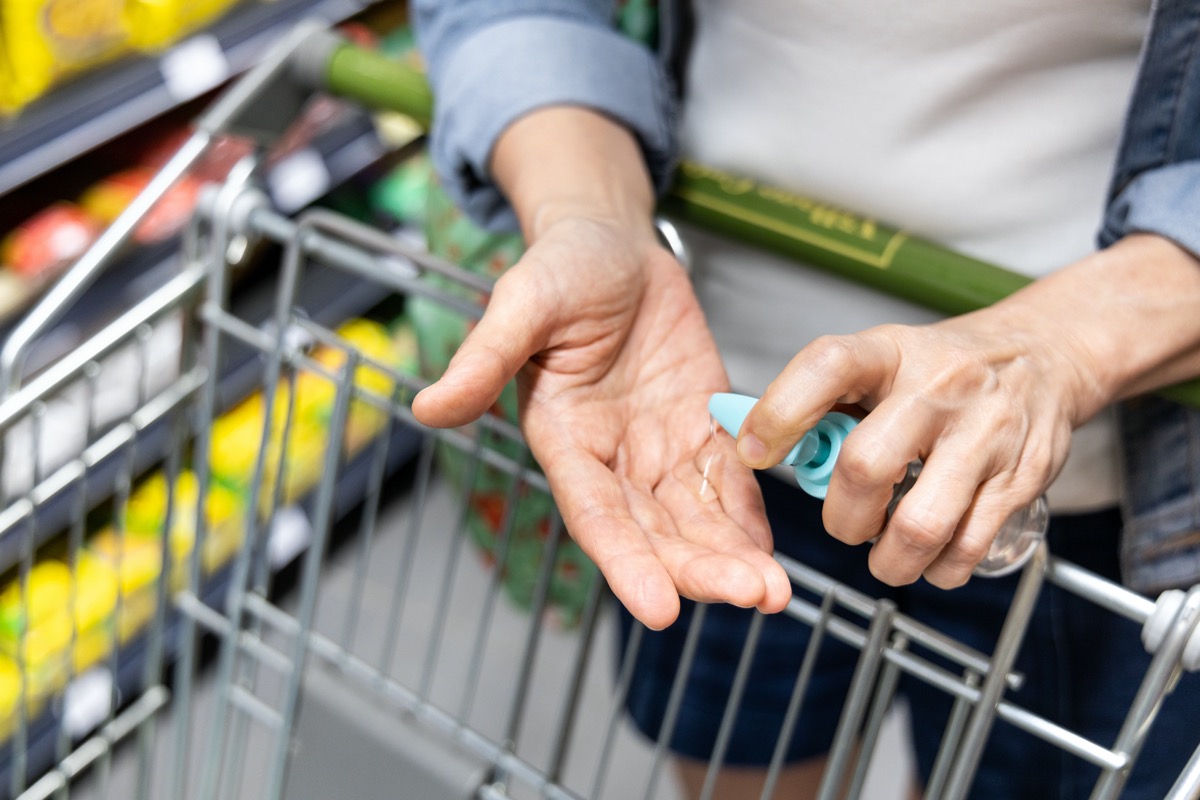
So, you’re trying to practice safe social distancing and staying home as much as you can. But you probably still have to head to the grocery store at least once a week to restock your fridge. Stores and workers are doing their part to keep things as safe as possible, but there are also measures you can take to minimize your risk of catching the coronavirus (or other illnesses that can spread from person to person).
The main steps, of course, are to follow the CDC and WHO’s guidelines and stay at least six feet from other customers and workers in the store. And a face covering, even if it’s just a scarf or bandanna, can help prevent the spread of the virus to others, in case you’re an asymptomatic carrier. Beyond that, it’s never a bad idea to carry hand sanitizer and sanitizing wipes with you when you’re shopping. Here are some high-touch things at the grocery store that you’ll want to look out for.
Other People
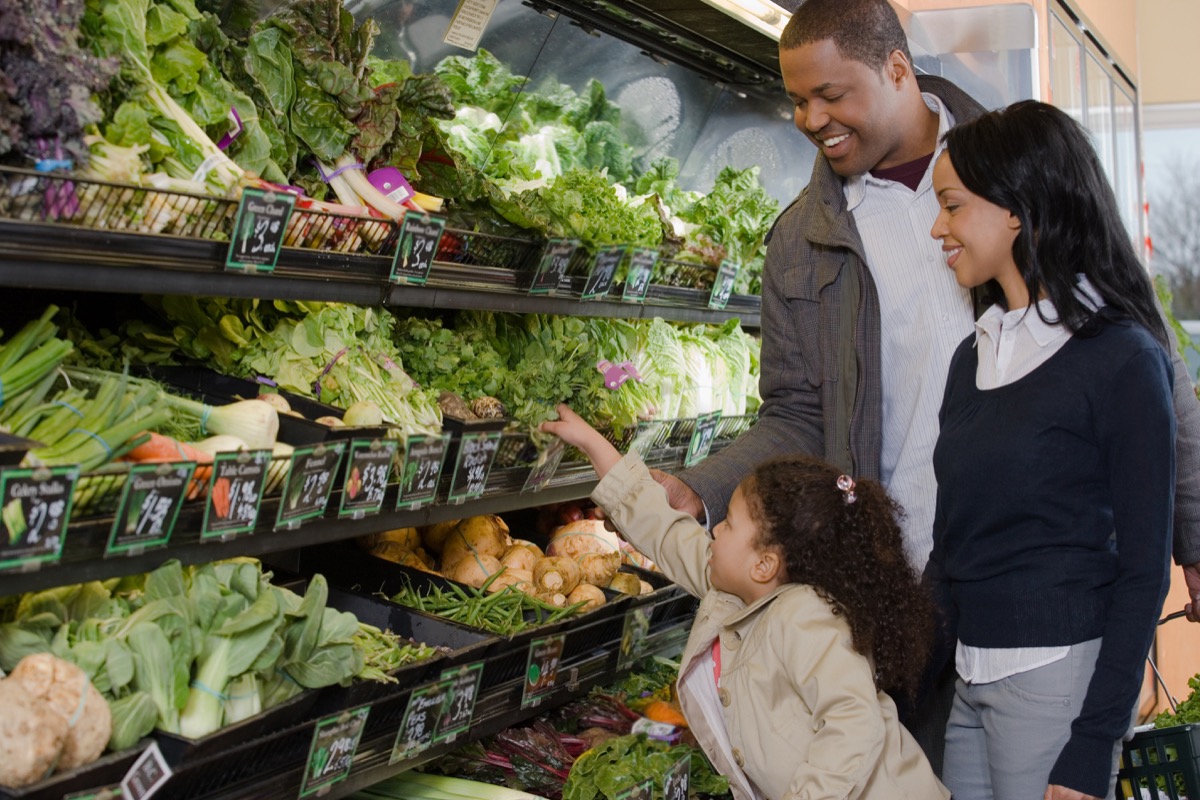
While high-touch items can be dangerous, the biggest thing to look out for when you’re shopping is other people. Keeping your distance is essential, even if it means your grocery-shopping trip will take longer. And if you’re able, shop by yourself, and not with others from your household.
Carts
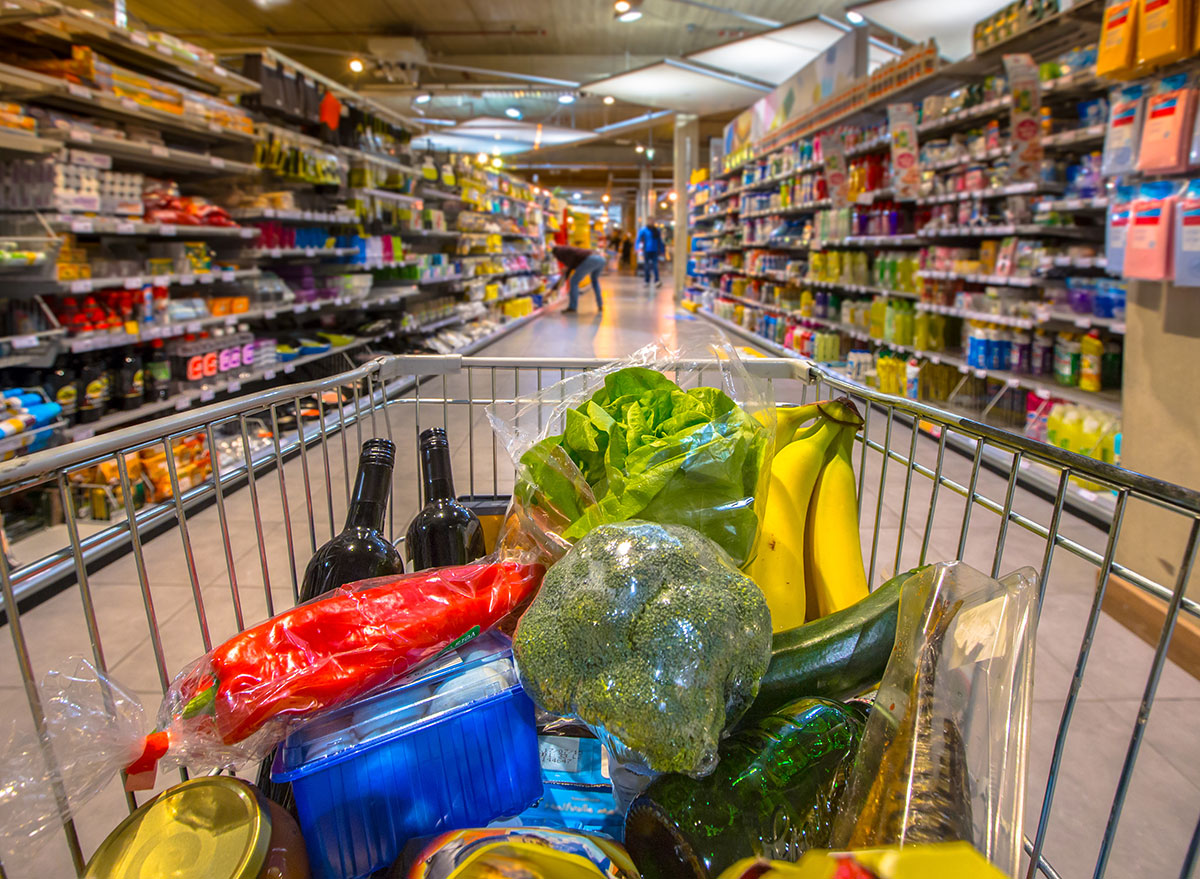
Grocery store workers are likely sanitizing cart handles frequently. But if you’re worried, you can wear gloves or bring a wipe to run over the handle and inside of your shopping cart before moving through the store.
The coronavirus could remain on surfaces for days, so it’s worth wiping your cart down—better safe than sorry.
Shelves
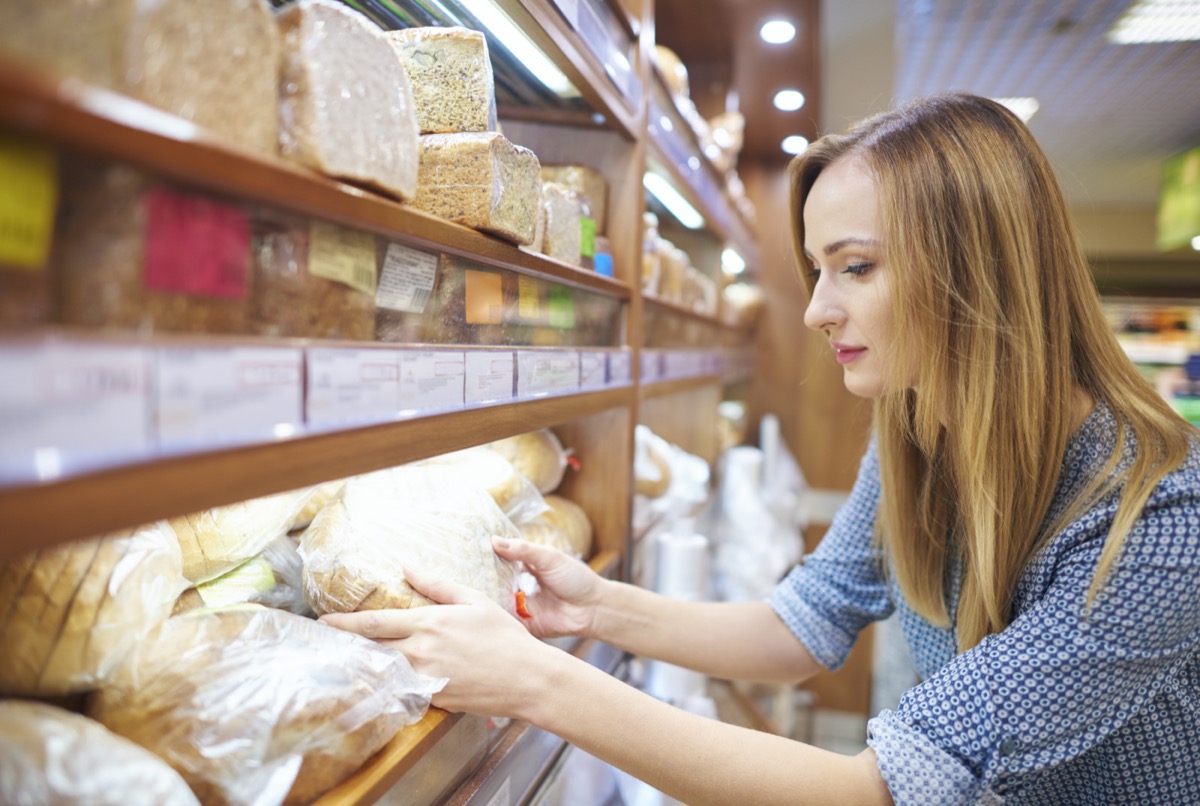
Again, these are likely being cleaned frequently at your local grocery store. But the virus can thrive on any surface for as long as several days, so try to only touch the products you need and not the shelves themselves.
Produce Scales
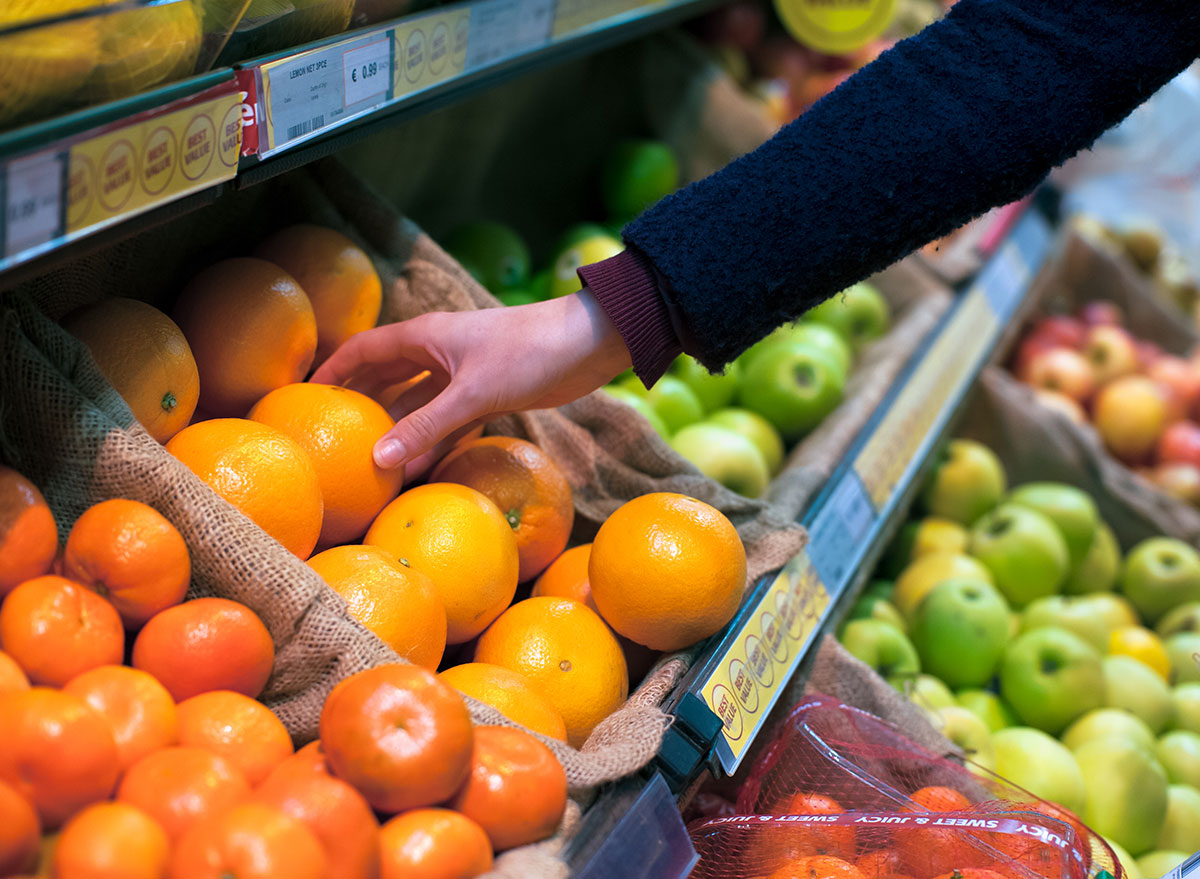
Does your grocery store sell things like apples and bananas by weight? These scales probably qualify as high-touch items, and respiratory droplets from people without masks could fall onto them, too. Try using a produce bag before weighing your items, or wipe down the scale with a disinfecting wipe.
Freezer Door Handles
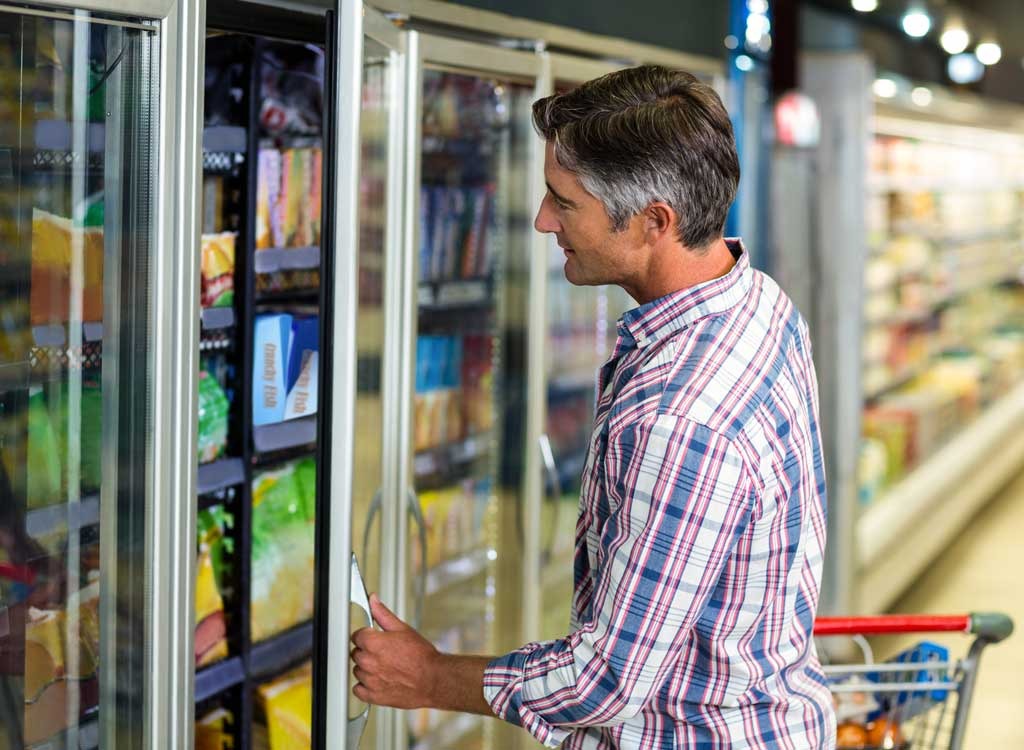
Does your grocery store keep frozen items in individual cases you have to open? Wear gloves to the grocery store if you’ll be touching these handles, or sanitize your hands after touching them.
Refrigerator Bumpers
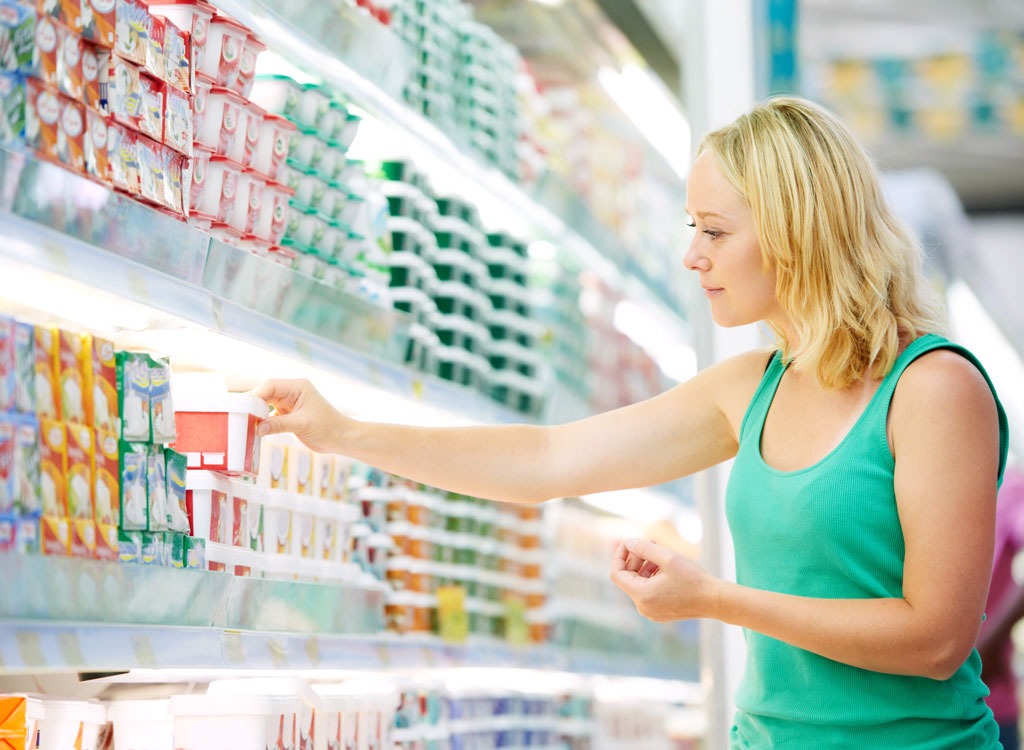
A Trader Joe’s employee told us that these bumpers, found at the bottom of refrigerated grocery sections, qualify as high-touch items and are being disinfected regularly at their store. If you tend to lean while shopping, try not to touch these bumpers with your shoes or pants to minimize contact with anything that could be on the surface.
Bulk Bin Scoops
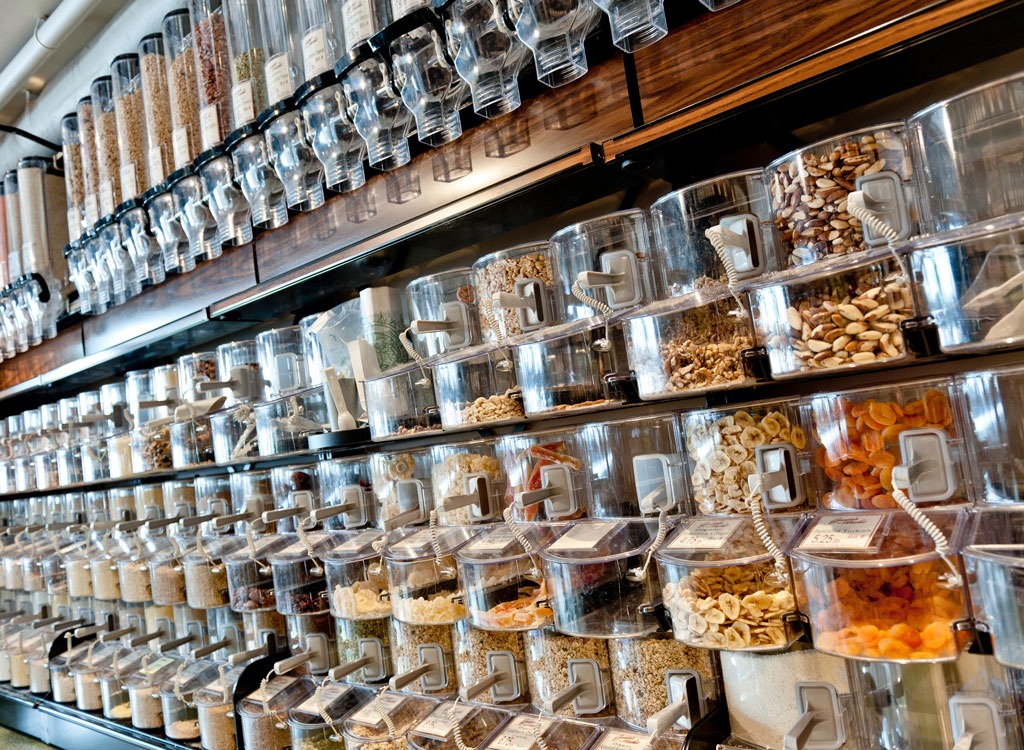
Another high-touch area to look out for at the store is the bulk bin section. Whether you’re scooping out oats or candy, the handles will pass over plenty of hands throughout the day. Not sure how often your store is cleaning these handles? It never hurts to wear gloves or use a disinfecting wipe.
And if all of this has you worried about buying your food, here are a few things at the grocery store you shouldn’t worry about too much.
Cash Registers and Belts
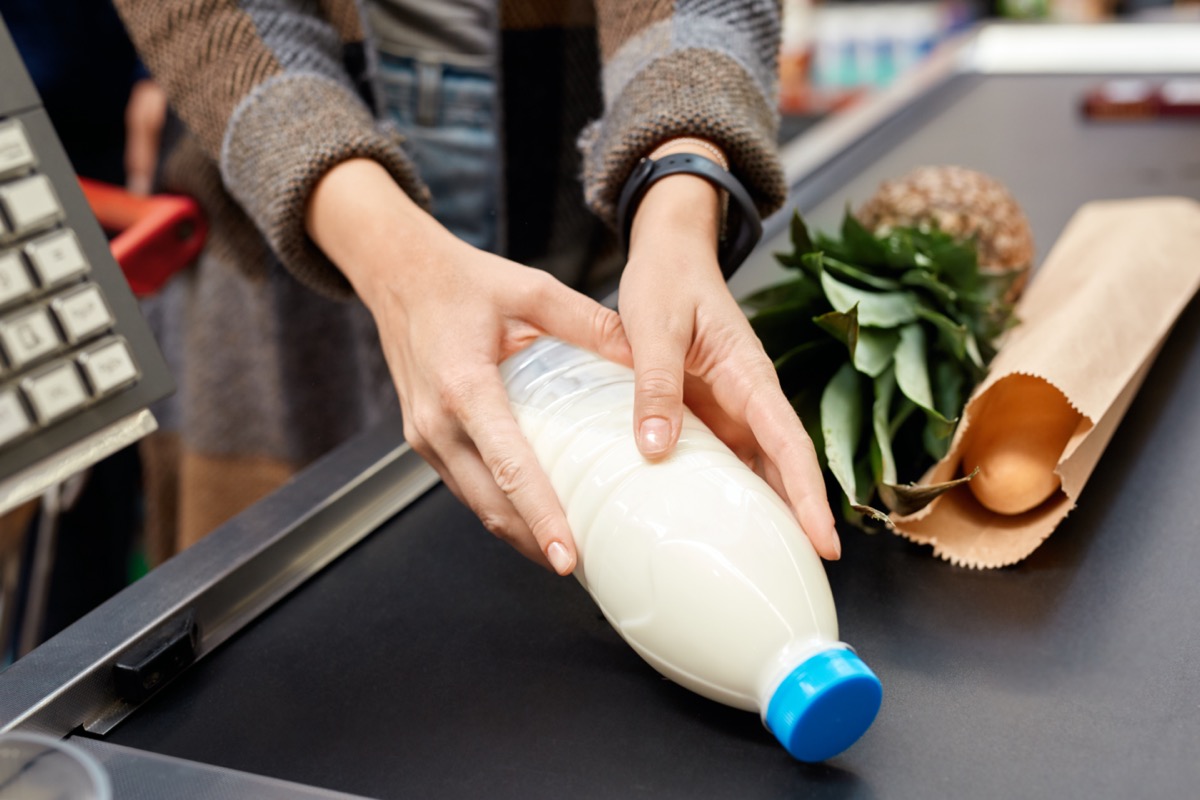
These are some of the easiest areas for grocery store workers to disinfect in between customers, so it’s unlikely that anything will linger on them for too long. Don’t worry too much about putting your food on the belt—it’s likely that the cashiers are cleaning them frequently.
Fresh Food
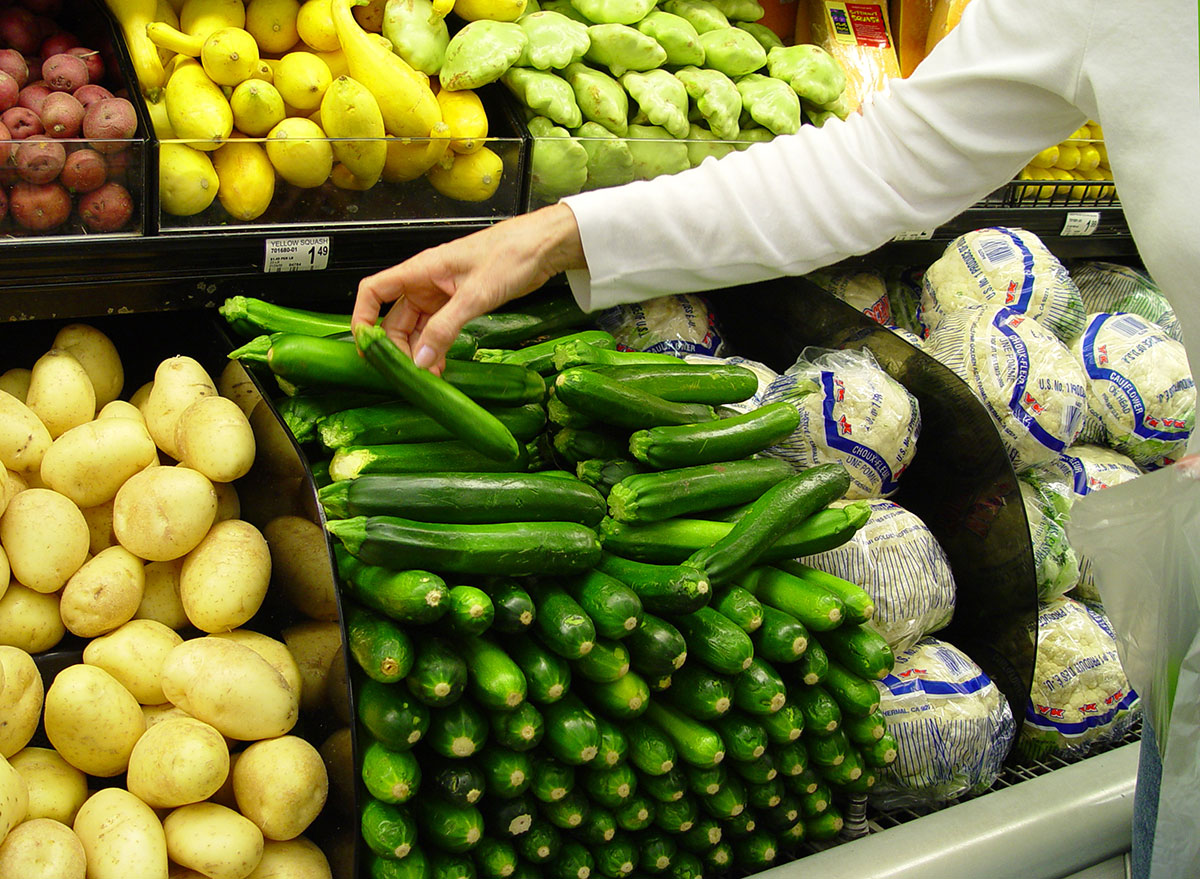
Yes, it’s always good to have some shelf-stable foods at home, especially if that means you’ll have to go to the store less often. But if you’re shying away from buying produce or meat because of the virus, don’t worry.
There’s no evidence that coronavirus can be transferred through food, so go ahead and load up your cart with your favorite fruits and vegetables. Thoroughly cooking your food will kill anything lingering on them. And if you’re snacking on your favorite fruits and veggies raw, here’s how to wash produce the right way.
As for packaged food, coronavirus being transferred via food packaging is unlikely, too. As long as you wash your hands when you get home and cook your food thoroughly, this shouldn’t be too much of a concern.
Bags
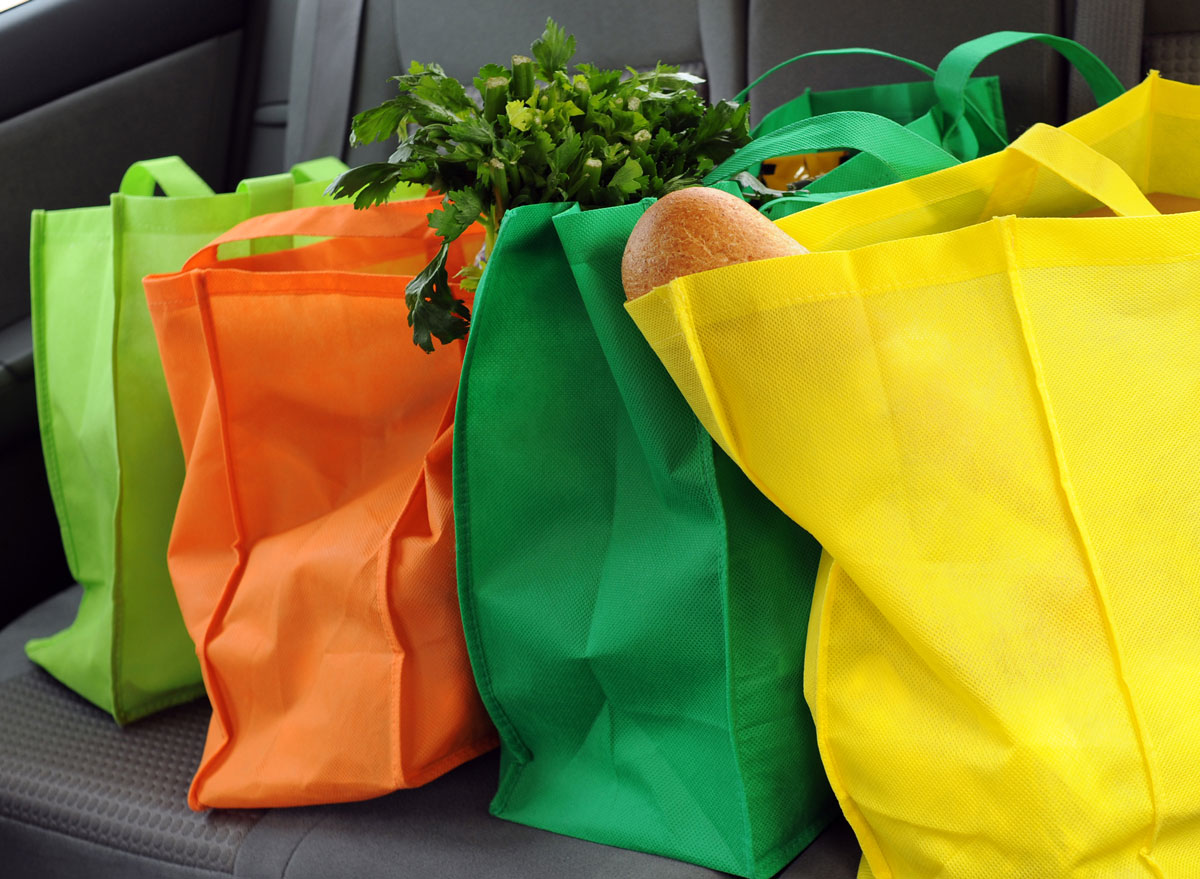
If you’re bringing a reusable grocery bag to the store (always a win!), you can disinfect it at home after each use, either by hand or by throwing it in the washing machine. And if you’re getting plastic or paper bags from the store, you probably don’t need to worry about the surfaces. The bags will likely have spent enough time in transit for anything on the surface to have died, and most of your food won’t be touching the bag directly.